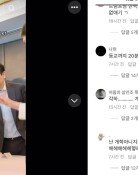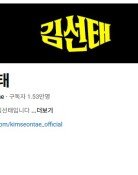[Opinion] Robert Kims Worries
[Opinion] Robert Kims Worries
Posted October. 07, 2005 07:35,
Whenever Robert Kim is discussed, the subject reminds me of the word patriotism. As a U.S. citizen who worked for Navy Intelligence, he intentionally gave out significant information to his mother country, Korea.
Why did the U.S. freely give out U.K. and Canada a piece of information that was not given to Korea? Since he felt regret over that, he secretly gave that information on North Korea to the South Korean embassy. That led to his arrest by the U.S. FBI on secret acquisition charges.
There was supposedly nothing to be gained from that action. However, U.S. prosecutors punished him anyway, charging, He turned his back on his employer (Navy Intelligence) and failed to fulfill his civilian duty as a U.S. citizen.
He was sentenced to seven years and 10 months in jail, two months of house arrest, and protective supervision for one year. He lost his job and all he had.
The English word patriotism comes from the land of ancestors or the people living on it. Kim had to pay a high price for feeling compassionate and affectionate toward Korea, the land of his ancestors, father and siblings, although he was an American.
The word patriotism is a word that has appeared in modern times. During the age of monarchy, loyalty toward kings was patriotism and there was no specific word as such. That is, the words patriotism and patriot have connotation of reforms or uprisings against kings.
In the same aspect, Napoleon in the post-French Revolution declared, The pinnacle of ethical values for human beings is patriotism. With this view, would it be possible to call Robert Kim, a reformist against the U.S., which unfairly distributed the information? Maybe he did all he could to help his nation by not tolerating the more favorable treatment of the U.S. toward the U.K. and Canada.
His punishment is now over. He is free on protective supervision now. Robert Kim has nothing left now and he just wants to visit his parents cemetery in his hometown of Yeosu City, Jeonnam Province. He also wants to teach freedom and democracy to the Korean youth. Democracy had been preserved even through wars and, I think, some South Korean youths tend to follow the North with no reason, he said.
After losing all he had, his human rights and all his financial property, because of his affection for his mother country, he is now worried about the human rights record in North Korea as well as reckless South Korean pro-North movements.
Kim Chung-sik, Editorial Writer, skim@donga.com







